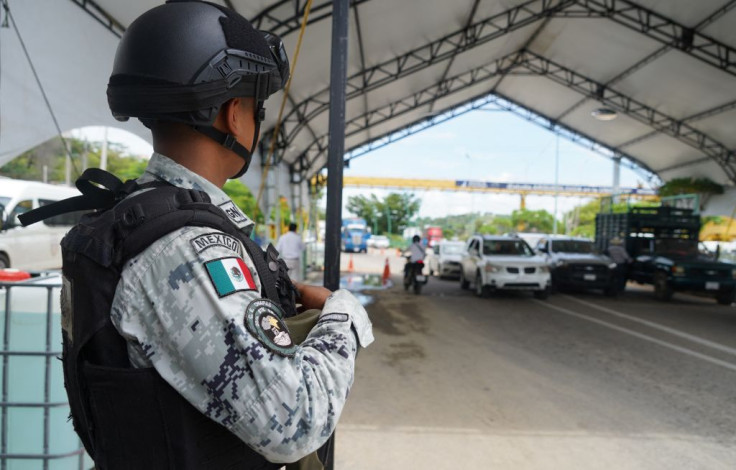
SEATTLE - A group of 138 migrants from Honduras, Ecuador and Venezuela was rescued from a stash house in Mexico by members of different law enforcement agencies.
Officers moved to a location near the Suchiate River, just a few miles from the Mexico-Guatemala border, after complaints from locals. The migrants told authorities that they were being held against their will, and that criminal groups were demanding them between $100 and $1000 in order to continue their journey up north.
Overall, 52 men, 58 women and 28 minors were being held captive inside the stash house. Mexican authorities did not report any arrests as the alleged captors were able to flee the scene before the raid was conducted.
Log into Facebook to start sharing and connecting with your friends, family, and people you know.
The migrants were then transported to a "migration station" in Tapachula, were they received medical care, food and information about their migratory status in Mexico.
Dubbed as migration stations, these establishments were created by the National Institute of Migration to offer temporary housing for migrants and asylum seekers that do not count with the necessary accreditation to cross into Mexico.
For years, migrants from South and Central America have faced the risk of being held against their will by criminal groups in stash houses in the Mexican border state of Chiapas.
Last December, Mexican authorities rescued a group of 155 migrants that were being held captive in the municipality of Tonalá, Chiapas.
Hidden under blankets and cardboard, the more than 150 migrants were reportedly wearing plastic bracelets to facilitate criminal groups with count and identification processes. Authorities reported that Chinese, Senegalese and Guianese nationals were among those held captive.
Earlier this year, in March, Chiapas state police intercepted a semi-trailer truck that transported 44 migrants from different nationalities and detained the alleged smuggler. According to the Secretariat of Security and Civilian Protection (SSyPC), the group of migrants was being transported from the Tonalá region to a different city in exchange of money.
According to data from an organization called Grupos Beta, a service by the National Institute of Migration that offers water, medical aid and information to migrants at risk, between January and July, about 450 migrants were rescued from extreme-risk conditions.
In that period, they have also oriented and offered humanitarian aid to 135,679 migrants. In the first seven months of 2024, Grupos Beta reported 34 dead bodies of migrants trying to make their way to the U.S.-Mexico border.
© 2024 Latin Times. All rights reserved. Do not reproduce without permission.











